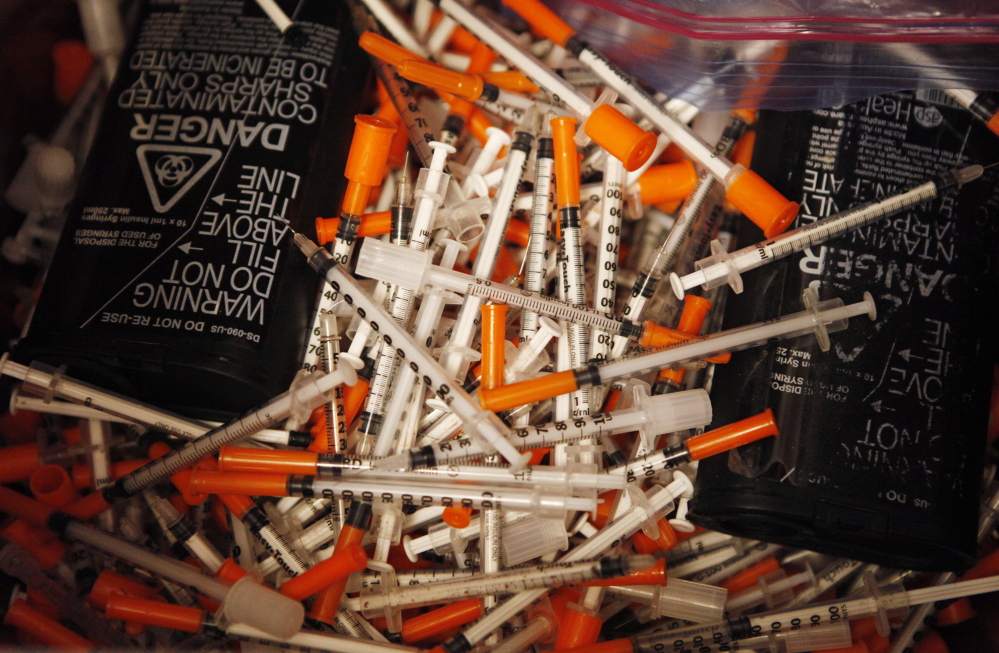The toll heroin takes on its users can be measured not only in deaths caused but also in lives blighted. A case in point is the news that an explosion in heroin use in Maine has been accompanied by a threefold surge in cases of acute hepatitis C – the worst outbreak here since the state began tracking cases in 1996.
Because hepatitis C – an infectious disease that attacks the liver – is often spread by drug users sharing needles, a big part of combating the crisis is ensuring that users have access to clean needles. But even though demand for their services has skyrocketed, Maine’s needle exchange programs still operate on a shoestring.
They get no public funding – Portland’s program, for example, relied on a $5,000 grant and small donations last year – despite proof that the programs benefit the public at large as well as intravenous drug users. It’s time for Maine to provide clean-needle programs with financial support as well as statutory support.
Hepatitis C poses a huge public health risk. Most people with acute hepatitis C develop a long-term infection that can cause liver damage, liver failure and even liver cancer. (Hepatitis C is also the leading cause of liver transplants.)
Those infected can live for decades without realizing they’re sick, diagnosed only when they’ve developed the symptoms of advanced liver disease.
By containing the spread of hepatitis C, needle exchange programs cut down on taxpayer costs: The two new drugs that can get rid of the virus cost $1,000 a pill. “Ten cents for a needle, $90,000 for three months of hepatitis C treatments. There’s no comparison,” Dr. Caroline Teschke, director of the clinic that operates Portland’s needle exchange program, recently told the Press Herald.
Clean-needle programs drive down blood-borne disease infection rates, studieshavefound. The programs also bring IV drug users into contact with health care providers, providing opportunities to connect with clients and sway them toward substance abuse treatment.
What these programs don’t do is encourage drug use. “The reason most people don’t shoot up is not lack of needle access” – it’s that they recognize the dangers of IV drugs and choose to avoid them, neuroscience journalist Maia Szalavitz recently noted in Time magazine. And the people who do inject drugs will use contaminated needles if sterile ones aren’t available – they won’t stop using.
A longtime federal ban on funding for needle exchange programs has contributed to the misperception that they’re unsafe. But the fact is that there’s both a humanitarian and a pragmatic case for the programs.
Indeed, the Maine agency that certifies syringe exchange programs has acknowledged their effectiveness – and state-funded clean-needle programs have worked in places like New York state and Washington state. So Maine should put its money where its mouth is and dedicate financial resources to syringe exchanges. Otherwise, we’ll be giving rhetoric credence over reality.
Send questions/comments to the editors.


